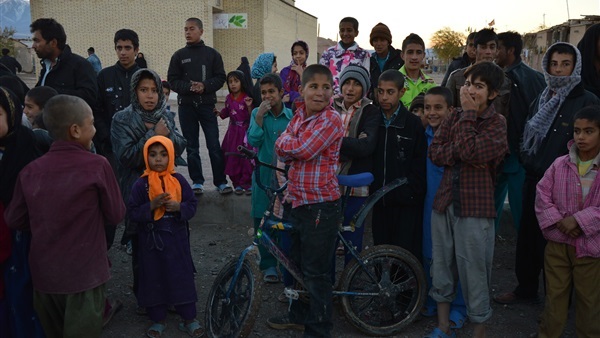Pakistani Deportation Orders Instill Fear among Afghan Refugees

The security situation between Afghanistan and its neighboring
Pakistan, already tense, has escalated since the Taliban assumed power in
Afghanistan in August 2021. The Pakistani faction of the Taliban movement aims
to mirror its Afghan counterpart's support for their cause, a sentiment openly
acknowledged by Taliban officials who assert the Pakistani faction's integral
role in the movement.
Despite hosting nearly two million Afghan migrants and
having historically intertwined relations between the two nations, Islamabad
seems to have found no exemption from taking stringent measures against Kabul
amidst ongoing disturbances.
Refugee Expulsion
In early October 2023, the Pakistani Foreign Ministry
announced its intention to deport all migrants residing illegally in the
country, including approximately 1.7 million Afghans – as estimated by the
United Nations – before the end of the month. The ministry warned of immediate
deportation for those lacking valid documentation after the specified period.
These decisions have sparked widespread fear among
Afghans fleeing the Taliban, apprehensive about forced deportation that could
expose them to severe issues with the ruling regime in Afghanistan, namely the
Taliban.
In a statement, the Pakistani Foreign Ministry
spokesperson, Muzzammil Zahrab Baloch, reassured Afghan residents within its
borders, emphasizing that the new measures do not specifically target Afghans.
Islamabad, according to the statement, has generously hosted Afghan refugees
for 40 years, starting from the Soviet occupation until now.
The Foreign Ministry's statement clarified that there is
no need to fear deportation for registered Afghan refugees, highlighting that
the concern pertains only to those residing illegally, regardless of their
nationality.
Reasons for Panic
These Pakistani decisions come amid escalating violence
along the Afghan-Pakistani border fueled and supported by the Taliban. This
development raises concerns among Afghan refugees about the consequences of
forced deportation and the risk of falling into the hands of the Taliban in
Afghanistan.
Stéphane Dujarric, spokesperson for the UN
Secretary-General Antonio Guterres, expressed concerns about Pakistan's new
policy toward refugees. He stressed the importance of not repatriating refugees
without ensuring voluntary returns.
These measures have faced internal opposition within
Afghanistan. Zabihullah Mujahid, the Taliban spokesperson, issued a statement
criticizing Kabul's objections to these measures. He pointed out that such
actions are unacceptable, urging Islamabad to reconsider the planned
deportations at the end of this month.
Routine Measures
Dr. Mohamed El Sayed, an expert in Asian affairs,
explained in an exclusive statement to the Reference that such actions are not
new for Islamabad. Deportation measures are taken periodically and routinely,
similar to other countries globally, focusing on not allowing residence for
those lacking proper documentation.
He highlighted that refugees' fears this time are
justified due to the circumstances surrounding the decision. The heightened
violence by the Taliban along the Afghan-Pakistani border, coupled with their
support from the Pakistani Taliban, adds weight to the refugees' concerns. The
fear is further justified by the Taliban's treatment of returnees as enemies of
the regime, exemplified by their refusal to adhere to calls for amnesty, even
for former officials returning after 20 years, such as Bayandeh Mohammad Arab,
the brother of the former Afghan National Islamic Movement military official
Abdullah Rashi Dostum, who received a death sentence for alleged involvement in
events two decades ago in the Dushanbe Lili region of Jowzjan province.









